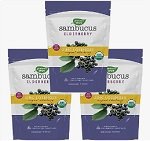After finding many debates on the topic, we investigated the connection between zinc and dementia further.
Is there a link? Does zinc help patients with dementia?
Some professionals believe that taking zinc can significantly HELP people with the progressive illness.
Does Zinc Help Dementia

Zinc is an important mineral that the body uses for several functions.
It is needed for regulatory, catalytic, and structural functions in the body that include but not limited to:
- Working with antioxidants to prevent arteriosclerosis
- Chemical reactions with enzymes
- With DNA to prevent dementia or Alzheimer’s
- Different cells activity
- Helps the liver to detoxify alcohols
- Production of pancreatic enzymes
- Aids with the removal of carbon dioxide
- Works in the kidneys to maintain acid-base balance
In the past, they used zinc as a treatment for wounds and the common cold.
Evidence, however, suggests that people who have male fertility issues, diarrhea, pneumonia, and Alzheimer’s can also use zinc.
Nature Cures Clinic explains that without zinc, the RISK of developing dementia or Alzheimer’s disease (AD) increases.
Most seniors, people with dementia, and those with mental disorders normally have a zinc deficiency.
One of the primary reasons this happens is that for zinc to be effectively absorbed in the bloodstream, humans need an acid known as “picolinic acid.”
This is an acid that is excreted by the pancreases.
When zinc supplements or food with zinc reach the small intestine, the pancreas excretes the acid. It binds with the mineral moving across the intestine wall and finally into the bloodstream.
Professionals from the University of Maryland Medical Centre discovered that daily zinc supplementation of 30-40 mg could help ENHANCE the memory and cognitive functioning of people who have dementia.
Suggested Zinc Supplements Available on Amazon
Foods Rich in Zinc

It is important to highlight some of the foods that people can take to increase zinc levels in the body.
(You don’t always need to go straight to supplements.)
Some of them include:
- Lamb
- Beef
- Oysters
- Shrimp
- Herring
- Cheese
- Yeasts
- Sunflower, sesame, & pumpkin seeds
- Mushroom
- Wheat germ and bran
- Squash
- Spinach
- Collard greens
- Asparagus
- Maple syrup
- Miso
- Chard
- Broccoli
Zinc supplements are another option people have when looking to increase the levels of the mineral in the body.
Note: Excessive amounts, zinc can be toxic.
Aim for about 20-2 mg daily as this is considered a safe amount. Do not exceed 40 mg every day.
Some of the TOXIS EFFECTS of excess zinc include nausea, stomach pain, diarrhea, cramps, and vomiting.
Controversial Views about Zinc and Dementia

According to WebMD, zinc is implicated in two ways when it comes to AD one of the main causes of dementia.
Some reports indicate that low levels of zinc are a problem.
Other studies show too much zinc is also a problem. Autopsies found that the brain of people with Alzheimer’s showed low levels of zinc.
Recent studies also suggest that TOO MUCH zinc is also not a good thing. In a lab experiment, zinc caused beta-amyloid from cerebrospinal fluid.
This is the fluid that forms clumps which are similar to plaques that are common in AD.
More experiments are pursuing this angle in laboratory tests.
Zinc and Dementia Closing Thoughts
More research still needs to be done when it comes to zinc and dementia and HOW the mineral CAN HELP persons with the illness.
It is important for anyone who is thinking of taking zinc supplements to consult their doctor first.
This will ensure there are no potential interactions with other medications or health conditions a person may have.






